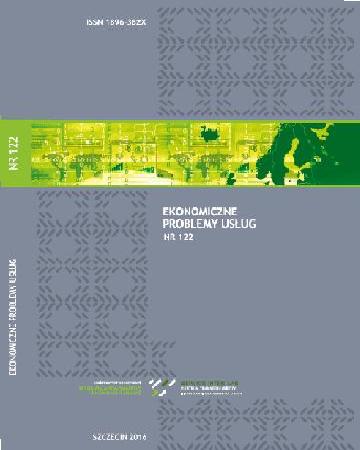
ISSN: 1896-382X
eISSN: 2353-2866
OAI
DOI: 10.18276/epu.2018.133/1-26



Issue archive /
nr 133 (1) 2018
Koordynacja polityk fiskalnych w Unii Europejskiej
(COORDINATION OF FISCAL POLICIES IN THE EUROPEAN UNION)
| Authors: |
Marcin
Wajda
Katedra Skarbowości SGH |
| Keywords: | fiscal policy European Union deficit public debt |
| Data publikacji całości: | 2018-12-16 |
| Page range: | 12 (321-332) |
| Klasyfikacja JEL: | G18 H30 H60 |
Abstract
The aim of the paper is to present the legal solutions and their effectiveness with respect to the co-ordination of fiscal policies within the European Union. The starting point for the analysis is the justification of the co-ordination of fiscal policies in the European Union. The further sections of the article discuss the basis resulting from the “preventive” and “reparatory” provisions of the Treaty on the Functioning of the European Union (TFEU). These regulations have been analysed in terms of their efficiency with respect to the reference values specified in Protocol 12 of the TFEU. The analysis was based on the excession of reference values and dispersion in all Member States. The presented conclusions demonstrate that the existing solutions are ineffective. The paper also presents and evaluates the scenarios of the reform of fiscal policy co-ordination in the EU that are possible in the opinion of the EC
Download file
Article file
Bibliography
| 1. | Alińska, A., Woźniak, B. (2015). Współczesne finanse publiczne. Warszawa: Difin. |
| 2. | Barnes, S., Botev, J., Rawdanowicz, L., Stráský, J. (2016). Europe’s new fiscal rule. Review of Economics and Institutions, 7 (1). |
| 3. | Biała Księga (2017). Biała Księga w sprawie przyszłości Europy. Refleksje i scenariusze dotyczące przyszłości UE-27 do 2025 r. Bruksela: Komisja Europejska. COM 2025. Pobrane z: https://ec.europa.eu/commission/ publications/factsheets-white-paper-future-europe_pl (05.05.2017). |
| 4. | Buti, M. (2015). What future for rules-based fiscal policy? IMF Conference: Rethinking Macro Policy III: Progress or Confusion? Pobrane z: https://ec.europa.eu (16.09.2018). |
| 5. | Działo, J. (2012). Fiscal Rules and Effective Fiscal Policy. Comparative Economic Research, 2 (15), 65–78. DOI: 10.2478/v10103-012-0010-1. |
| 6. | European Commission (2017). Economic cohesion. W: My Region, My Europe, Our Future. Seventh report on economic, social and territorial cohesion (s. 1–52). Luxembourg: Publications Office of the European Union. Pobrane z: ec.europa.eu/regional_policy/sources/docoffic/official/reports/cohesion7/7cr.pdf (16.09.2018). |
| 7. | Eyraud, L., Wu, T. (2015). Playing by the Rules: Reforming Fiscal Governance in Europe. IMF Working Paper, 15/67. |
| 8. | Halac, M., Yared, P. (2018). Fiscal Rules and Discretion in a World Economy. American Economic Review, 108 (8), 2305–2334. |
| 9. | Nowak-Far, A. (2018a). Komentarz do art.120 Traktatu o funkcjonowaniu Unii Europejskiej. Pobrane z: http://lex.online.wolterskluwer.pl (20.05.2018). |
| 10. | Nowak-Far, A., (2018b). Komentarz do art.136 Traktatu o funkcjonowaniu Unii Europejskiej. Pobrane z: http://lex.online.wolterskluwer.pl (20.05.2018). |
| 11. | Owsiak, S., (2017). Finanse publiczne. Współczesne ujęcie. Warszawa: Wydawnictwo Naukowe PWN. |
| 12. | Rosati, D. (2017). Polityka gospodarcza. Wybrane zagadnienia. Warszawa: Oficyna Wydawnicza SGH. |
| 13. | Traktat (2009). Traktat o funkcjonowaniu Unii Europejskiej. Dz. Urz. UE C 326, 26.10.2012, s. 47–390. |
| 14. | Tyniewicki, M. (2014). Sytuacja w zakresie wieloletniego planowania finansowego w państwach członkowskich Unii Europejskiej przed uchwaleniem dyrektywy 2011/85/UE. W: E. Ruśkowski (red.), Roczność i wieloletniość w finansach publicznych. Warszawa: Wolters Kluwer. |